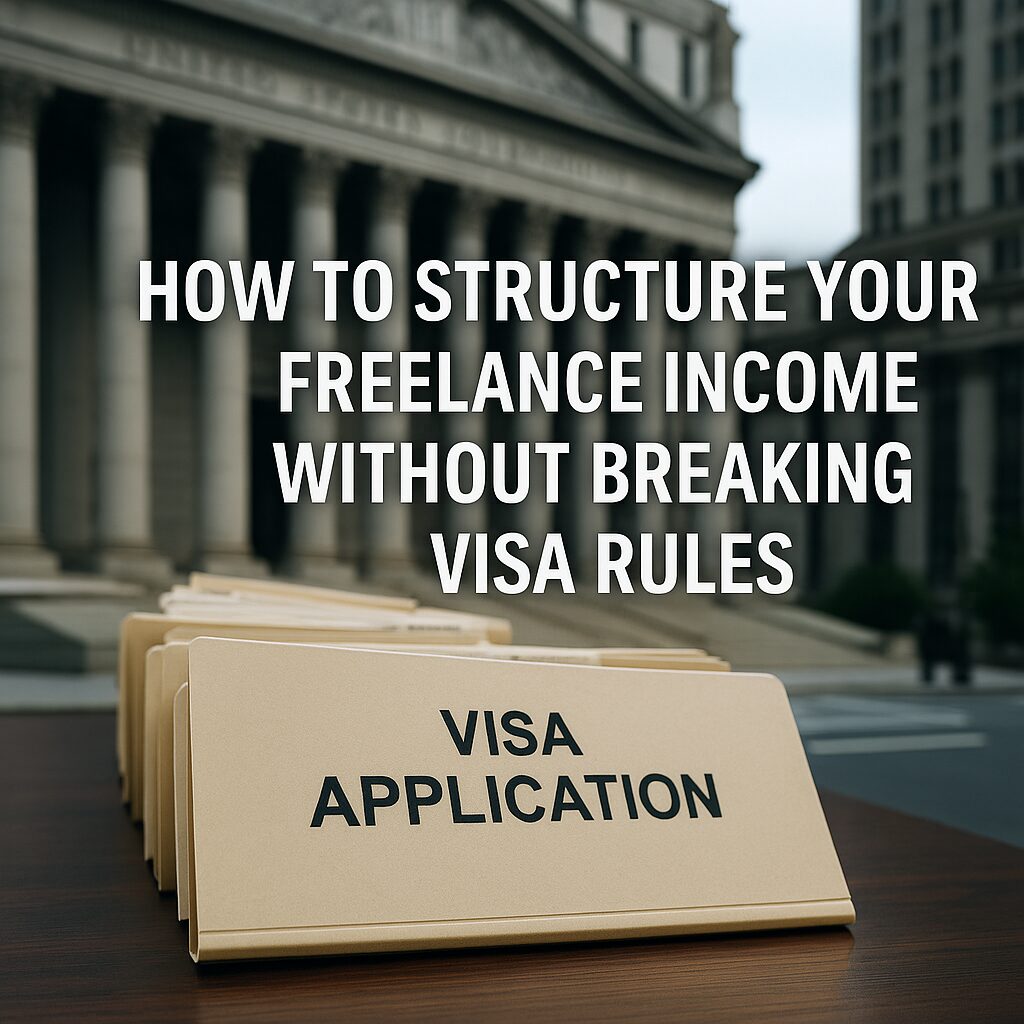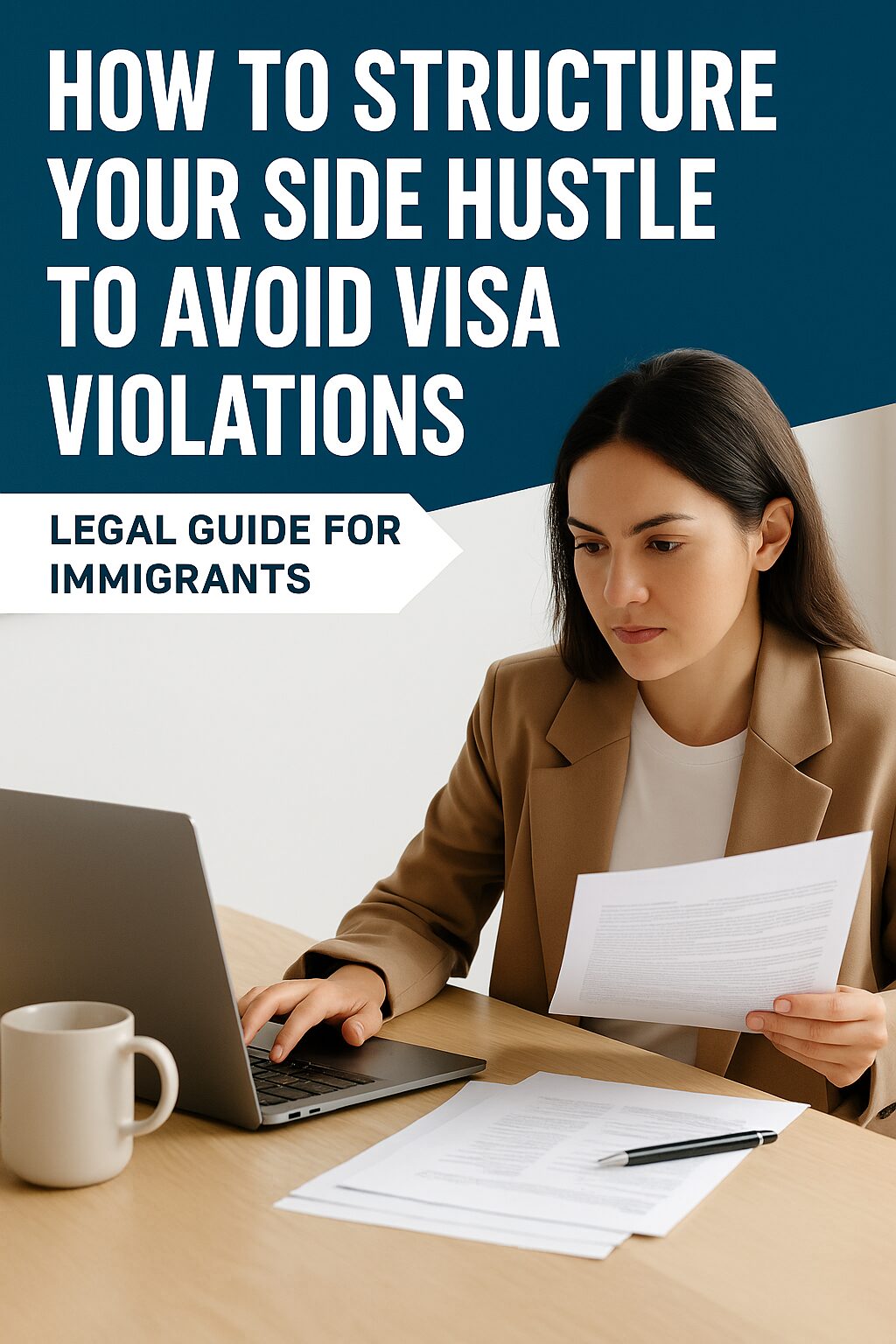Freelancing offers incredible freedom, but when you live in a foreign country on a visa, that freedom comes with legal strings attached. Many visa types impose restrictions on work, and failing to comply can jeopardize your immigration status. This comprehensive guide explains how to legally structure your freelance income, avoid visa violations, and build a sustainable income anywhere in the world.
1. Understand Your Visa Type and Restrictions
Each visa type comes with specific work limitations:
- Tourist visas (e.g., B1/B2 in the U.S.) prohibit all forms of paid work.
- Student visas (F-1) may allow limited work on-campus or authorized internships (CPT/OPT).
- Work visas (H-1B, L-1, O-1) usually restrict work to a sponsoring employer.
- Freelancer-friendly visas (O-1, E-2, EB-2 NIW) allow self-employment under certain conditions.
Before freelancing, check your visa rules carefully or consult an immigration attorney.
2. Set Up a Legal Entity in a Freelance-Friendly Jurisdiction
If your visa forbids local freelancing, consider creating a legal entity in a country friendly to digital nomads, such as:
- U.S. LLCs (Delaware, Wyoming)
- Estonia e-Residency business
- Other freelancer-friendly countries
This structure allows you to invoice clients legally, receive payments internationally, and separate your business from your personal affairs, reducing legal risks.
3. Separate Business and Personal Finances
Maintain separate banking accounts for freelance income and personal funds. Use international payment platforms like Wise, Payoneer, or business accounts tied to your legal entity. This separation helps audits and shows clear income sources.
4. Use Appropriate Freelance Platforms
Choose platforms that don’t tie earnings to your physical location:
- Upwork, Fiverr, Toptal are international with global payments.
- Contra, Workana support digital nomads.
- Direct client contracts can also work if you have a registered business.
Avoid platforms or clients requiring local presence without authorization.
5. Draft Contracts That Reflect Your Legal Status
All contracts should:
- List your legal business entity, not just your name
- Specify that work is done remotely or from your freelance-friendly jurisdiction
- Include clear payment terms and deliverables
Well-crafted contracts protect you during visa or tax reviews.
6. Report Income Transparently and Comply with Tax Laws
Even offshore income may be taxable depending on your residency. Keep detailed records of all freelance income, report honestly, and pay taxes where required. This transparency is critical to avoid penalties or visa issues.
7. Consult Immigration and Tax Professionals
Before scaling your freelance business, consult immigration attorneys and tax accountants experienced with your visa type and country. Expert advice prevents costly mistakes and keeps your immigration status safe.
8. Plan for Business Growth with Visa Compliance in Mind
If your long-term goal is a visa like O-1 or EB-2 NIW, build a strong portfolio with documented projects, client testimonials, and global income evidence. Your freelance work should support your visa application narrative.
9. Stay Updated on Changing Visa and Tax Regulations
Immigration and tax laws evolve. Regularly review official guidelines and maintain contact with professionals to adapt your freelance strategy accordingly.
Final Tip: Freelance Smart and Safe
Freelancing on a visa requires balancing opportunity with compliance. Use legal entities, clear contracts, transparent finances, and expert guidance to grow your income without risking your visa.
📌 Coming Up Next
The Top 5 Freelance Platforms for Immigrants to Start Earning Right Now
→ Learn about the best beginner-friendly and visa-compliant platforms for immigrants and digital nomads.

